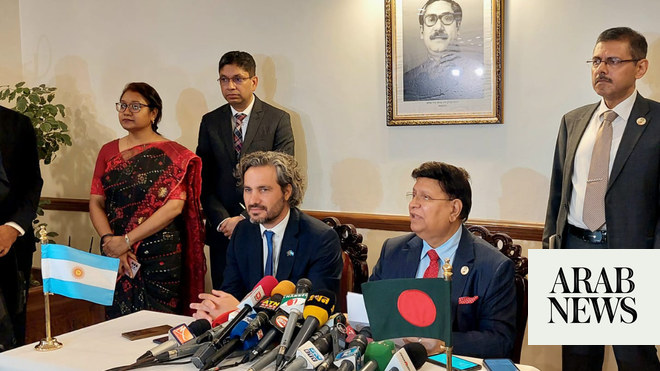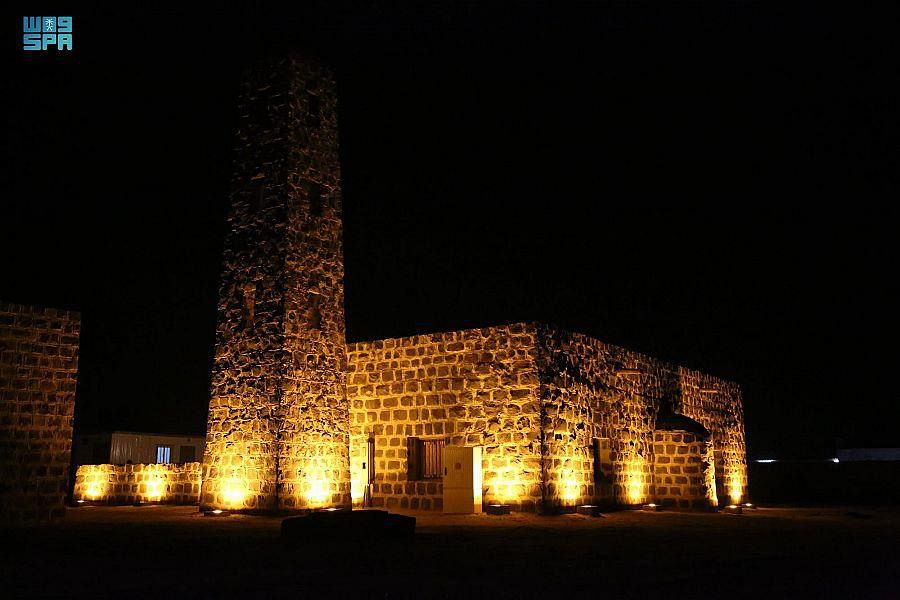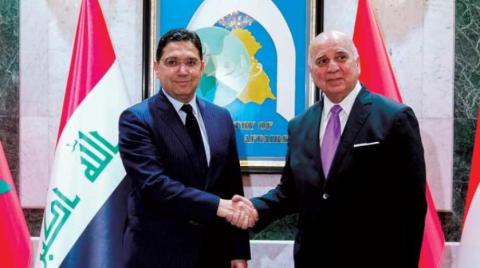
Eritrea reopened its embassy in Ethiopia on Monday in a fresh sign of a rapid thaw between two countries that a week ago ended two decades of military stalemate over a border war in which tens of thousands died.
Ethiopia’s Prime Minister Abiy Ahmed and Eritrea’s President Isaias Afwerki re-opened the embassy in the capital Addis Ababa in a brief ceremony, a Reuters witness said. One week ago the leaders declared their “state of war” over and Isaias spent the weekend in Ethiopia.
The rapprochement could help Ethiopia, a landlocked country of 100 million people with the largest economy in East Africa, by making access to Eritrea’s ports possible. Better ties could help Eritrea overcome decades of relative isolation.
The leaders jointly raised the Eritrean flag inside a newly refurbished embassy as a military band played Eritrea’s anthem. They then toured the building and looked at its furniture and two rusting cars that belonged to Eritrea’s last ambassador.
In a tweet Eritrea’s information minister, Yemane Meskel described the reopening of the embassy as “yet another milestone in the robust and special ties of peace and friendship both countries are cultivating with earnestness in these momentous times.”
Isaias left Addis Ababa to return home soon after re-opening the embassy.
The Eritrean leader arrived in Addis Ababa for a three-days historic visit on Saturday and thousands lined the Ethiopian capital’s main thoroughfare Bole Road, sporting T-shirts emblazoned with the pictures of both countries’ leaders.
The visit comes just days after Abiy visited Eritrea and signed a pact with Isaias on resuming ties, a move that ended a near 20-year military standoff after a border war.
Eritrea formally seceded from Ethiopia in 1993 after a long battle for independence, but the two fought a border war in 1998 that claimed lives of at least 80,000.
A peace deal was signed two years later but Ethiopia refused to implement it, saying it wanted more talks.
The armies of both nations have both been facing off across their border since the war ended and security dominates both countries concerns.
The rapprochement was set in motion after Abiy in April became Ethiopia’s prime minister. Abiy said he would accept and implement a boundary commission’s ruling on the Eritrea border and implement sweeping political and economic reforms.
Abiy’s chief of staff, Fitsum Arega, said in a tweet better ties “will create the ideal conditions to address remaining strategic issues in the shared interest of the two nations.”
On Sunday, Abiy and Isaias Afwerki preached love and unity on Sunday at a concert attended by thousands of flag-waving guests.
As they entered the entered the Millennium Hall on Sunday evening, Abiy and Isaias held hands and waved at the crowd, prompting loud cheers. Musicians performed under giant portraits of the two men.
“We have chosen to tread a path and work together for development, prosperity and peace, having overcome a conspiracy of hatred, revenge and destruction,” Isaias told the audience, which included Ethiopian celebrities.
Reconciliation between Ethiopia and Eritrea could change the politics and security situation of the volatile Horn of Africa region, which hundreds of thousands of young people have fled seeking safety and opportunities in Europe.
Last week, government spokesman Ahmed Shide said landlocked Ethiopia wants to make the reopening of two critical roads leading to the Red Sea ports of Assab in Eritrea’s south and Massawa in the north a priority.
Both countries are hoping for a lucrative peace dividend after years of hostility.
“Forgiveness frees the consciousness. When we say we have reconciled, we mean we have chosen a path of forgiveness and love,” Abiy told concertgoers.
“When I spoke with Isaias, I told him that there may not be enough hotels as Ethiopians visit Massawa and Asmara. He said he would leave his house for them and stay in balconies.”
Abiy and Isaias hugged. An emotional Isaias had both his hands rested on his heart as he waved the guests goodbye.












